The Three Caballeros is a 1944 American live-action animated musical package film produced by Walt Disney and released by RKO Radio Pictures. The film premiered in Mexico City on December 21, 1944. It was released in the United States on February 3, 1945 and in the UK that March. The seventh Disney animated feature film, the film plots an adventure through parts of Latin America, combining live-action and animation. This is the second of the six package films released by Walt Disney Productions in the 1940s, following Saludos Amigos (1942). It was also the first feature length film to incorporate traditional animation with real life, live-action actors.
| The Three Caballeros | |
|---|---|
Original theatrical release poster | |
| Directed by |
|
| Produced by | Walt Disney |
| Story by |
|
| Starring |
|
| Music by |
|
Production company | Walt Disney Productions |
| Distributed by | RKO Radio Pictures |
Release date |
|
Running time | 72 minutes |
| Country | United States |
| Language |
|
| Box office | $3,355,000 (worldwide rentals) |
The film is plotted as a series of self-contained segments, strung together by the device of Donald Duck opening birthday gifts from his Latin American friends. Several Latin American stars of the period appear, including singers Aurora Miranda (sister of Carmen Miranda) and Dora Luz, as well as singer and dancer Carmen Molina.
The film was produced as part of the studio's good will message for South America. The film stars Donald Duck, who in the course of the film is joined by old friend José Carioca, the cigar-smoking parrot from Saludos Amigos, who represents Brazil, and later becomes friends with a pistol-packing rooster named Panchito Pistoles, who represents Mexico.
Screenplay
The film consists of seven segments, each connected by a common theme. In the film, it is Donald Duck's birthday (namely Friday the 13th), and he receives three presents from friends in Latin America. The first present is a film projector, which shows him a documentary about birds. During the documentary, he learns about the Aracuan Bird, who received his name because of his eccentric song.
The next present is a book given to Donald by José. This book tells of Bahia (spelled "Baía" in the film), which is one of Brazil's 26 states. José shrinks them both down so that they can enter the book. Donald and José meet up with several of the locals, who dance a lively samba, and Donald ends up pining for one girl, but fails. After the journey, Donald and José leave the book.
Upon returning, Donald realizes that he is too small to open his third present. José shows Donald how to use "black magic" to return himself to the proper size. After opening the present, he meets Panchito, a native of Mexico. The trio take the name "The Three Caballeros" and have a short celebration. Panchito then presents Donald's next present, a piñata. Panchito tells Donald of the tradition behind the piñata. José and Panchito then blindfold Donald, and have him attempt to break open the piñata, eventually revealing many surprises. The celebration draws to a close when Donald is fired away by firecrackers in the shape of a ferocious toy bull (with which the firecrackers are lit by José with his cigar).
Throughout the film, the Aracuan Bird appears at random moments. He usually taunts everyone with his madcap antics, sometimes stealing José's cigar and trying to make José jealous. His most famous gag is when he re-routes a train that Donald and José are riding on by drawing new tracks, causing the train to disassemble.
The film consists of seven segments:
The Cold-Blooded Penguin
This segment is narrated by Sterling Holloway, reproducing images of the penguins of Punta Tombo in Argentina along the coast of Patagonia. In the segment, a penguin named Pablo is so fed up with the freezing conditions of the South Pole that he decides to leave his home for warmer climates landing on the Galápagos Islands.
The Flying Gauchito
This segment, with adult narration provided by Fred Shields, involves the adventures of a little boy from Uruguay and a winged donkey, who goes by the name of Burrito (which is Spanish for "little donkey").
Baía
This segment involves a pop-up book trip through the Brazilian state of Bahía, as Donald and José meet up with some of the locals who dance a samba and Donald pining for one of the women, portrayed by singer Aurora Miranda.
Las Posadas
This is the story of a group of Mexican children who celebrated Christmas by re-enacting the journey of Mary, the mother of Jesus and Saint Joseph searching for room at the inn. "Posada" meant "inn", or "shelter", and their parents told them "no posada" at each house until they came to one where they were offered shelter in a stable. This leads to festivities including the breaking of the piñata, which in turn leads to Donald Duck trying to break his own piñata as well.
Mexico: Pátzcuaro, Veracruz and Acapulco
Panchito gives Donald and José a tour of Mexico on a flying sarape, or magic carpet. Several Mexican dances and songs are learned here. A key point to what happens later is that Donald is pining for some more ladies again, tries to hound down every single one he sees, and gain return affections, but once more he fails every time and ends up kissing José while blindfolded.
You Belong to My Heart and Donald's Surreal Reverie
The skies of Mexico City result in Donald falling in love with singer Dora Luz. The lyrics in the song itself play parts in the scenarios as to what is happening as well. Then several imagined kisses lead to Donald going into the "Love is a drug" scene. Donald constantly envisions sugar rush colors, flowers, and Panchito and José popping in at the worst moments, making chaos. The scene changes after Donald manages to dance with Carmen Molina from the state of Oaxaca, from the Isthmus of Tehuantepec. The two dance and sing the song "La Zandunga". Carmen begins by singing the song, with Donald "quacking" out the rest of the chorus with her. The "drunkenness" slows down for a second after Donald multiplied himself while dancing, but speeds up again when Carmen reappears dressed in a Charro's outfit and uses a horsewhip as a conductor's baton to make cacti appear in many different forms while dancing to "Jesusita en Chihuahua", a trademark song of the Mexican Revolution. This scene is notable for providing the masterful combination of live-action and cartoon animation, as well as animation among the cacti.
The scene is interrupted when Panchito and José suddenly spice things up for the finale of the movie, and Donald ends up battling the same toy bull with wheels on its legs the day before from earlier. The catch is that it is again loaded with firecrackers and other explosives, following with a fireworks finale with the words "The End" exploding from the fireworks, first in Mexican Spanish (Fin), in the colors of the flag of Mexico, then in Brazilian Portuguese (Fim), in the colors of the flag of Brazil, and finally in English, in the colors of the flag of the United States.
Influence
Agustín Lara's song "You Belong to My Heart" was featured in a Disney short called Pluto's Blue Note (1947). It was later recorded by Bing Crosby. The Ary Barroso's song "Bahia" and the title song became popular hit tunes in the 1940s. The complete "Bahia" sequence was cut from the 1977 theatrical reissue of the film.
Some clips from this film were used in the "Welcome to Rio" portion of the Mickey Mouse Disco music video.
Don Rosa wrote and drew two comic book sequels: The Three Caballeros Ride Again (2000) and The Magnificent Seven (Minus 4) Caballeros (2005).
In September 2006, Panchito and José returned at Walt Disney World where they appear for meet and greets. They can only be found outside the Mexico pavilion in World Showcase at Epcot. Donald also appears with them.
The 2011 Mickey's Soundsational Parade at Disneyland features all three Caballeros and the Aracuan Bird in one parade unit.
- Clarence Nash – Donald Duck (also dubbed the Spanish, French, German, Portuguese and Italian versions)
- José Oliveira – José Carioca (also dubbed the Spanish, French, German, Portuguese and Italian versions)
- Joaquin Garay – Panchito Pistoles (also dubbed the Italian version and the songs in the Spanish version)
- Aurora Miranda - Yaya
- Dora Luz
- Carmen Molina
- Sterling Holloway – Narrator (Pablo The Cold-Blooded Penguin)
- Frank Graham – Narrator
- Fred Shields – Narrator (The Flying Gauchito)
- Francisco "Frank" Mayorga – Mexican Guitarist
- Nestor Amaral
- Trío Calaveras
- Trío Ascencio del Río
- Padua Hills Player
- Carlos Ramírez – Mexico
The film's original score was composed by Edward H. Plumb, Paul J. Smith, and Charles Wolcott.
- The title song, "The Three Caballeros", based its melody on "Ay, Jalisco, no te rajes!" a Mexican song composed by Manuel Esperón with lyrics by Ernesto Cortázar. "Ay, Jalisco, no te rajes!" was originally released in a 1941 film of the same name, starring Jorge Negrete. After seeing Manuel Esperón's success in the Mexican movie industry, Walt Disney called him personally to ask him to participate in the movie. New English lyrics were written to the song by Ray Gilbert.
- "Baía" based its melody on the Brazilian song "Na Baixa do Sapateiro" which was written by Ary Barroso and first released in 1938. New English lyrics were written by Ray Gilbert. Another Ary Barroso song, "Aquarela do Brasil", was featured in "The Three Caballeros' prequel "Saludos Amigos", with its original Portuguese lyrics.
- "Have You Been to Bahia?" was written by Dorival Caymmi and was originally released in 1941. The song was translated into English with no major changes, other than replacing the word "nega" (A woman of African descent) with "Donald", who the song is addressed to in the film. Parts of the song are still sung in its original Portuguese.
- "Pandeiro & Flute" was written by Benedito Lacerda, and is played during the Baia train sequence. It is the opinion of Disney's Chief Archivist Emeritus, Dave Smith that the piece was not written originally for the film, but was instead licensed to Disney; however he is unaware of any evidence that proves this opinion. The piece was developed by Charles Wolcott, and Lacerda went uncredited in the film.
- "Os Quindins de Yayá" was written by Ary Barroso and first released in 1941. Unlike Barroso's other song to be featured in this film, "Os Quindins de Yayá" was left in its original Portuguese. The song is sung by Aurora Miranda in the film.
- "Os Quindins de Yayá" is briefly interrupted by a man singing a small portion of "Pregões Cariocas" which was written by Braguinha in 1931. This song was first recorded under the name "Cena Carioca" and came to be known as "Pregões Cariocas" in 1936.
- "Mexico" was composed by Charles Wolcott with lyrics by Ray Gilbert and was sung by Carlos Ramírez. It is the only song in the film to be completely original.
- The "Jarabe Pateño" was written by Jonás Yeverino Cárdenas in 1900. It is considered one of the most famous compositions from the Mexican state of Coahuila.
- "Lilongo" was written by Felipe "El Charro" Gil and copyrighted in the U.S. in 1946, though it was first recorded in the U.S. in 1938. It is performed by Trío Calaveras in the film.
- "You Belong to My Heart" based its melody on the Mexican song "Solamente una vez", which was written by Agustín Lara. Like "Ay, Jalisco, no te rajes!" and "Na Baixa do Sapateiro", new English lyrics were written to the song by Ray Gilbert.
- "La Zandunga" (also spelt "La Sandunga") is a traditional Mexican song and the unofficial anthem of the Isthmus of Tehuantepec, in the Mexican state of Oaxaca. The melody is believed to have originated from Andalusia and was rearranged by And
Watch movie The Three Caballeros online on Amazon
Watch movie The Three Caballeros online
Watch The Movie On PrimeShikari Full HD Movie Download

Welcome to Sajjanpur Full HD Movie Download
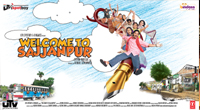
Ab Ke Baras Full HD Movie Download
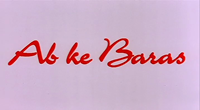
Sunehre Din Full HD Movie Download
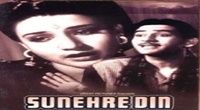
Dhan Dhana Dhan Goal Full HD Movie Download

Sapoot Full HD Movie Download
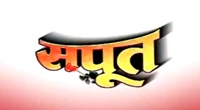
Rang De Basanti Full HD Movie Download
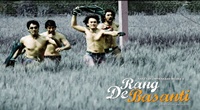
Ghar Ghar Ki Kahani (1988) Full HD Movie Download
.jpg)
Body Parts Full HD Movie Download
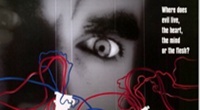
Porki Full HD Movie Download
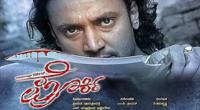
Bondhu (Bengali) Full HD Movie Download
.jpg)
Donga Police Full HD Movie Download
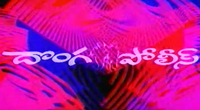
Shiva-The Power Full HD Movie Download
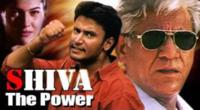
Going the Distance Full HD Movie Download

The Matrix Full HD Movie Download

Radha Tara Vina Mane Gamtu Nathi Full HD Movie Download

Kamini Full HD Movie Download
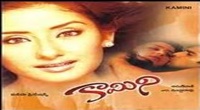
Police Commissioner Full HD Movie Download
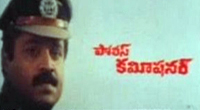
Nimisham Full HD Movie Download
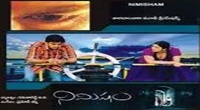
Gharana Alludu Full HD Movie Download
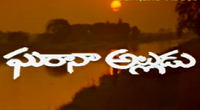
Anand Ashram Full HD Movie Download
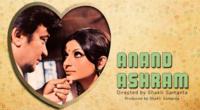
Download latest Movie from bollywood
- 1> baaghi 3
- 2> THE SKY IS PINK MOVIE FULL STORY AND REVIEW
- 3> Luka Chuppi
- 4> TO ALL THE BOYS I’VE LOVED BEFORE
- 5> Kabir Singh
- 6> Street Dancer 3D
- 7> Simmba
- 8> Gone Girl
- 9> The Girl Who Lived
- 10> Ludo
- 11> DILWALE DULHANIA LE JAYENGE
- 12> GUILTY
- 13> The Godfather
- 14> Adventures of Rusty
- 15> Sooryavanshi
- 16> Satyameva Jayate 2
- 17> Thappad
- 18> Bhool Bhulaiyaa 2
- 19> KGFChapter 2
- 20> Mardaani 2
- 21> Pinjar
- 22> Shivaji maharaj
- 23> Ek Villian 2
- 24> Hungama 2
- 25> Divergent
- 26> Mumbai Saga
- 27> The Internship
- 28> HIT (telugu)
- 29> Panga
- 30> The perfect date
- 31> 16 December
- 32> Gopala Gopala (Telugu)
- 33> Brahmastra
- 34> Gangubai Kathiawadi
- 35> Manmadhudu
- 36> Nenu local
- 37> Mahanati
- 38> Shatamanam bavathi
- 39> Lagaan
- 40> After
- 41> MOM
- 42> Shamshera
- 43> Raguvaran BTech
- 44> Khakee
- 45> The villain
- 46> OM
- 47> Mr. perfect
- 48> Bueatifull mind
- 49> Hichki
- 50> Gabbar Singh
- 51> Jogi
- 52> Before Sunrise
- 53> Before Sunset
- 54> Before Midnight
- 55> The Big Bull
- 56> Top Gun: Maverick
- 57> The Purge
- 58> The Sky is Pink
- 59> Laxmmi Bomb
- 60> Sadak 2
- 61> Sufna
- 62> Prithviraj
- 63> PK
- 64> Coolie No 1(2020)
- 65> Black Widow
- 66> Dear Zindagi
- 67> Dil Bechara
- 68> PHIR HERA PHERI
- 69> WAR
- 70> Dostana
- 71> RRR: Roudram Ranam Rudhiram
- 72> Maidan
- 73> Dabbang 3
- 74> Chhalaang
- 75> life as we know it
- 76> SherShaah
- 77> Sandeep Aur Pinky Faraar
- 78> Event Horizon
- 79> 83
- 80> Radhe: Your Most Wanted Bhai
- 81> Gunjan Saxena: The Kargil Girl
- 82> Mr India
- 83> Vivah
- 84> Anokha Bandhan
- 85> Ghost
- 86> Bhoot: Part One - The Haunted Ship
- 87> Haseen Dilruba
- 88> Laal Singh Chaddha
- 89> Qismat
- 90> Rajput
- 91> Drive
- 92> Dil Chahta Hai
- 93> Dil Ki Baazi
- 94> Dil Ka Rishta
- 95> Teesri Manzil
- 96> Dil
- 97> Love Aaj Kal
- 98> Khaali Peeli
- 99> Bunty Aur Babli 2
- 100> Atrangi Re
- 101> Gulabo Sitabo
- 102> Jodi
- 103> Suraj Pe Mangal Bhari
- 104> Deewana
- 105> Attack
- 106> Sardar Udham Singh
- 107> Toofan
- 108> THE LOVEBIRDS
- 109> Jersey
- 110> Ginny Weds Sunny
- 111> Thalaivi
- 112> Shiddat
- 113> Angels vs Zombies
- 114> Koi Mil Gya
- 115> Thank God
- 116> Bhuj: The Pride of India
- 117> Hum Aapke Hain Kaun
- 118> The Platform
- 119> Bird Box
- 120> Roohi Afzana
- 121> Torbaaz
- 122> Nikamma
- 123> World War Z
- 124> Extraction
- 125> Train to Busan
- 126> Life of Pi
- 127> SHAADI MEIN JROOR AANA
- 128> Himmat Aur Mehnat
- 129> To All The Boys: P.S. I Still Love You
- 130> Mimi
- 131> Good Newwz
- 132> Shubh Mangal Zyada Saavdhan
- 133> Raabta
- 134> Harry Potter and the Philosopher's Stone
- 135> Harry Potter and the Chamber of Secrets
- 136> Chhapaak
- 137> War of the Worlds
- 138> Harry Potter and the Prisoner of Azkaban
- 139> Harry Potter and the Goblet of Fire
- 140> MURDER MYSTERY
- 141> Shakuntala Devi
- 142> Bachchan Pandey
- 143> Jayeshbhai Jordar
- 144> Sheer Qorma
- 145> Saina
- 146> 'O' Pushpa I hate tears
- 147> Kedarnath
- 148> MS Dhoni The Untold Story
- 149> Chhichhore
- 150> Badhaai Ho
- 151> Unstoppable
- 152> Oz the Great And Powerful
- 153> The Girl on the Train
- 154> Haathi Mere Saathi 2020
- 155> The Conjuring: The Devil Made Me Do It
- 156> Gandhi Se Pehle Gandhi
- 157> The Song of Scorpions
- 158> Srimanthudu
- 159> Hello Guru Prema Kosame
- 160> Beauty and The Beast
- 161> Black Panther
- 162> Charlie and the Chocolate Factory
- 163> Bole Chudiyan
- 164> Fidaa
- 165> Duvvada Jagannadham
- 166> Bruce Lee: The Fighter
- 167> Hyper
- 168> Yaara
- 169> Red (2020)
- 170> Shivam
- 171> That Is Mahalakshmi
- 172> Nishabdham
- 173> Aashram 2020 web series
- 174> Laxmii
- 175> Mismatched
- 176> STUDENT OF THE YEAR 2
- 177> NAIL POLISH
- 178> Ramprasad Ki Tehrvi
- 179> KAAGAZ
- 180> 12 o Clock
- 181> The Power
- 182> bolo hau
- 183> Tribhanga
- 184> JAMUN
- 185> Madam Chief Minister
- 186> Maasaab
- 187> Aadhaar
- 188> Tanhaji
- 189> Bhaagi 3
- 190> Bhootnath
- 191> MALANG
- 192> Jai Mummy Di
- 193> Haathi Mere Saathi 2021
- 194> Shakeela
- 195> Unpaused
- 196> Annayya
- 197> Vamsoddharakudu
- 198> Mrugaraju
- 199> Narasimha Naidu
- 200> Sankranti
- 201> Manasu Maata Vinadhu
- 202> Anjaane
- 203> Apaharan
- 204> Bachke Rehna Re Baba
- 205> Bewafaa
- 206> Roohi
- 207> Radhe
- 208> Zindagi Khoobsoorat Hai
- 209> Yeh Mohabbat Hai
- 210> Yeh Kya Ho Raha Hai?
- 211> The Tomorrow War
- 212> DehradunDiary
- 213> Meri Shaadi Karaoo
- 214> Matruu Ki Bijlee Ka Mandola
- 215> No One Killed Jesica
- 216> Aag Ka Goola
- 217> Eight Million Dollars
- 218> Three Hundred
- 219> Cats and Dog
- 220> Decoy
- 221> Gold Rush
- 222> You Have Got Mail
- 223> Final Destination three
- 224> Tofan
- 225> Jungle
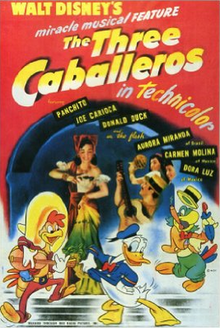 Story of movie The Three Caballeros :
Story of movie The Three Caballeros : 